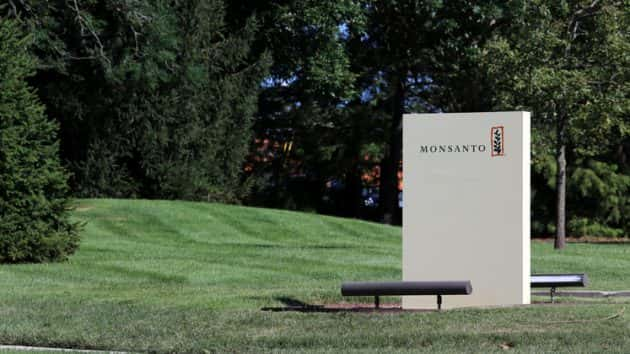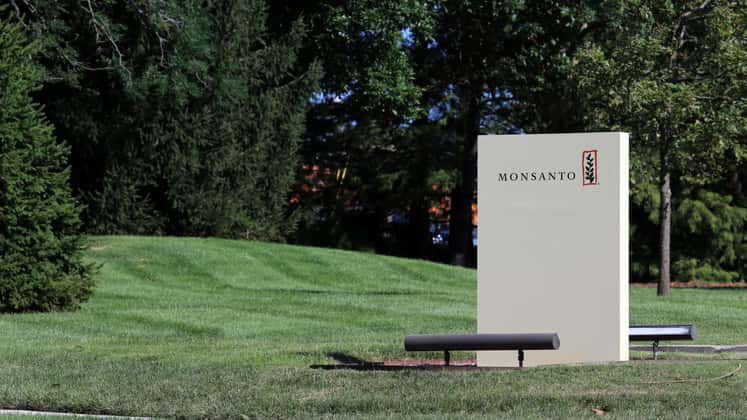
wellesenterprises/iStock
 wellesenterprises/iStock(NEW YORK) — Agriculture conglomerate Monsanto has started contacting journalists, politicians and activists it was keeping tabs on and documenting via “watch lists,” its parent company Bayer announced this week.
wellesenterprises/iStock(NEW YORK) — Agriculture conglomerate Monsanto has started contacting journalists, politicians and activists it was keeping tabs on and documenting via “watch lists,” its parent company Bayer announced this week.
An international group of journalists, politicians and activists whose information, including their views on pesticides, was tracked by the agribusiness giant, and placed on ‘watch lists’ by the company, were informed of the company’s surveillance activities, Monsanto’s parent company Bayer has announced.
Bayer disclosed details on Monday about the “watch lists” as part of a widening probe into the company’s practice of keeping tabs on people who it perceived as critics or supporters of the company’s products, amid global efforts to rehabilitate its reputation.
In May, Bayer disclosed that FleishmanHillard, an outside public relations firm hired by Monsanto before Bayer acquired the fertilizer maker, had drawn up lists of “stakeholders in France, Germany, Italy, the Netherlands, Poland, Spain, and United Kingdom” according to a statement released by the company . It described the stakeholders as “journalists, politicians and other interest groups” who had a position on pesticides.
On Monday, the Bayer said that people on the French and German “watch lists” had been notified they had been monitored by FleishmanHillard. Bayer addressed the lists after “a French television channel revealed the existence in France of files on prominent backers and opponents of pesticides and genetically modified crops,” according to Agence France-Presse (AFP), which reported there were 600 people who were kept track of from those two countries.
“By the end of last week, everyone on the German and French lists had been notified. This process will soon be completed in the remaining countries,” Bayer said in a statement.
The company added that it hired U.S.-based law firm Sidley Austin to investigate whether information was gathered on people considered to be opponents of Monsanto in other counties as well.
The law firm has found that “in contrast to France several weeks ago,” it “has neither found journalists nor sensitive private data on the German lists,” Bayer’s head of corporate communications, Christian Maertin, told ABC News.
Sidley Austin declined to respond to ABC News’ request for comment.
AFP has filed a complaint with French data protection regulators after discovering that some of its journalists were on the watch lists. Once the lists were revealed in May, Bayer immediately severed ties with FleishmanHillard regarding the tracking project and other public relations campaigns, Bayer said.
“Corporations, NGOs and other clients rightfully expect our firm to help them understand diverse perspectives before they engage. To do so, we and every other professional communications agency gather relevant information from publicly available sources,” FleishmanHillard wrote in a statement released in May. “Those planning documents are fundamental to outreach efforts. They help our clients best engage in the dialogue relevant to their business and societal objectives.”
The German pharmaceutical giant Bayer bought Monsanto last year for $63 billion, and has since dealt with several high-profile controversies in connection with the company. Last week, Bayer addressed Monsanto’s allegedly troubled legacy by announcing a new commitment to “transparency, sustainability and engagement.”
“We’re making good progress on integrating the acquired agriculture business, and are now starting to implement a series of measures to drive transparency and sustainability across our business,” Werner Baumann, chairman of the board of management of Bayer, said on Friday.
“These measures address questions and concerns Bayer has heard about its role in agriculture in the year following its acquisition of Monsanto,” according to a statement on the company’s website.
Statements about transparency come amid a broader image rehabilitation effort by Bayer after remarkably large civil court verdicts against Monsanto in the U.S., connecting a key ingredient in Monsanto’s Roundup fertilizer, glyphosate, with cancer, and holding the company liable for damages. The company is facing lawsuits from approximately 11,200 plaintiffs as of Jan. 28, according to the company’s annual report filed with the Securities and Exchange Commission (SEC).
At least three recent lawsuits in the U.S. have resulted in huge jury awards against Monsanto.
Last year, a California jury awarded $289 million to a California groundskeeper after ruling that Roundup caused his cancer. The award was later reduced to $78 million, and is being appealed, according to the company’s annual report.
In March of 2019, a federal jury in San Francisco awarded $80 million to a different California man after determining that Roundup caused his cancer. The company said it would appeal that decision.
In May, another California jury awarded $2 billion in damages to a couple who said Roundup caused both of them to contract non-Hodgkin’s lymphoma.
On Monday Bayer appealed the latest verdict. In a statement, a company spokesman said the trial “focused not on ascertaining the truth regarding the state of the science, causation, and compliance with legal duties, but instead on vilifying Monsanto in the abstract.”
Monsanto has repeatedly said that glyphosate is not a carcinogen.
Copyright © 2019, ABC Radio. All rights reserved.


